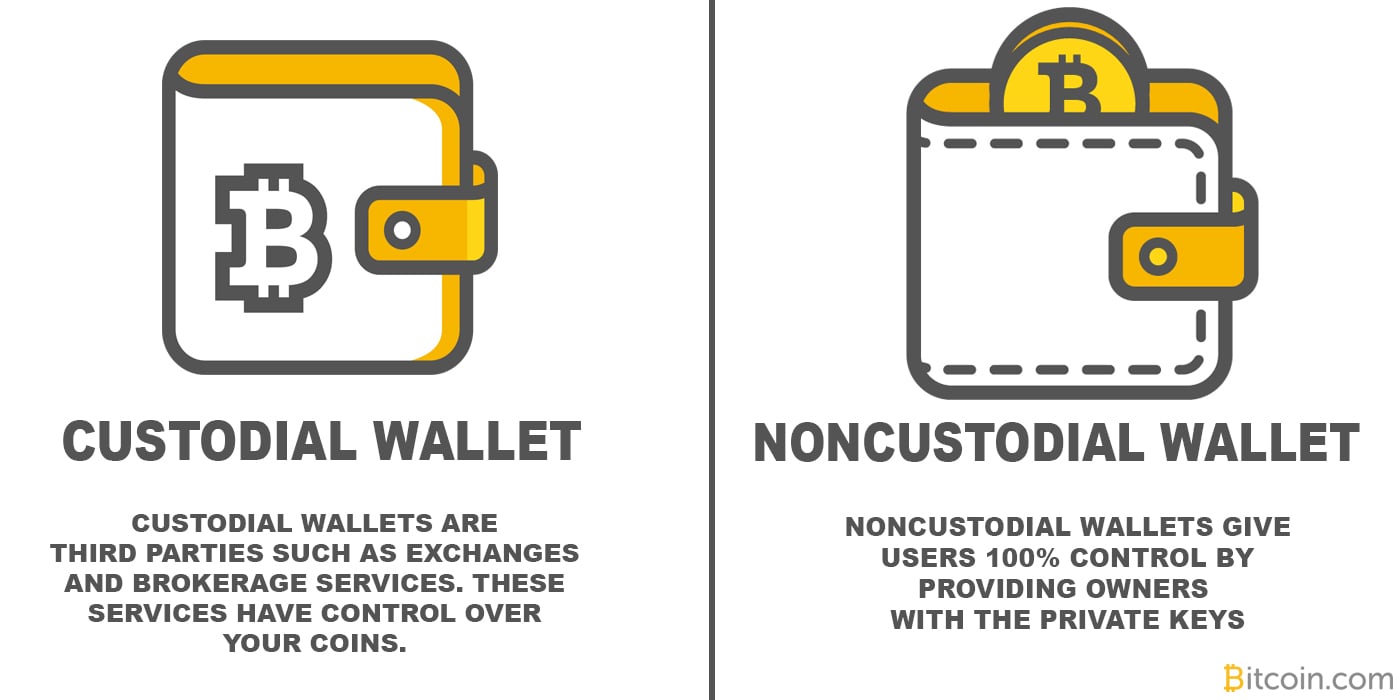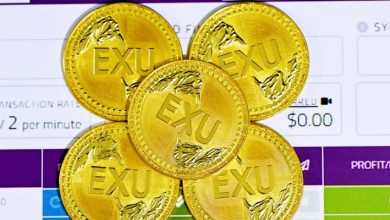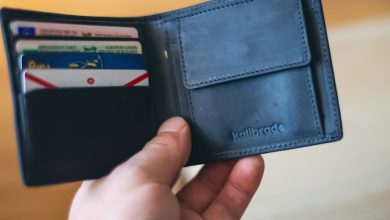Reviews of Non-Custodial Wallets

- Introduction to Non-Custodial Wallets
- Benefits of Using Non-Custodial Wallets
- Top Non-Custodial Wallets in the Market
- Security Features of Non-Custodial Wallets
- User Experience of Non-Custodial Wallets
- Tips for Choosing the Right Non-Custodial Wallet
Introduction to Non-Custodial Wallets
Non-custodial wallets are a type of cryptocurrency wallet that allows users to have full control over their funds without relying on a third party to manage them. These wallets are decentralized and provide users with the ability to store, send, and receive cryptocurrencies securely. Unlike custodial wallets, non-custodial wallets do not require users to trust a central authority with their funds, making them a popular choice among those who value privacy and security.
Benefits of Using Non-Custodial Wallets
Non-custodial wallets offer a range of benefits that make them a popular choice among cryptocurrency users. One of the main advantages is the increased security they provide. Since the user retains control of their private keys, there is no risk of the wallet provider being hacked and the funds being stolen. This gives users peace of mind knowing that their assets are safe and secure.
Another benefit of using non-custodial wallets is the privacy they offer. With no need to provide personal information to a third party, users can maintain their anonymity while conducting transactions. This is particularly important for those who value their privacy and want to keep their financial activities confidential.
Non-custodial wallets also offer greater control and flexibility to users. They can easily switch between different cryptocurrencies and have the freedom to manage their assets as they see fit. This level of autonomy is appealing to many users who prefer to have full control over their funds without relying on a third party.
Furthermore, non-custodial wallets are often more user-friendly and accessible compared to custodial wallets. With a simple interface and easy setup process, even beginners can quickly start using a non-custodial wallet to store and manage their cryptocurrencies. This accessibility makes them a popular choice for a wide range of users.
Top Non-Custodial Wallets in the Market
When it comes to non-custodial wallets, there are several options available in the market that offer users a secure and convenient way to store their cryptocurrencies. Here are some of the top non-custodial wallets that have gained popularity among crypto enthusiasts:
- MetaMask: MetaMask is a popular non-custodial wallet that allows users to store, send, and receive Ethereum and other ERC-20 tokens. It is a browser extension that is easy to use and offers a high level of security.
- Trezor: Trezor is a hardware wallet that provides users with a secure way to store their cryptocurrencies offline. It supports a wide range of digital assets and offers features such as password management and two-factor authentication.
- Trust Wallet: Trust Wallet is a mobile-based non-custodial wallet that supports a wide range of cryptocurrencies. It is known for its user-friendly interface and strong security features, making it a popular choice among mobile users.
- Ledger Nano S: Ledger Nano S is another hardware wallet that offers users a secure way to store their cryptocurrencies offline. It supports over 1,500 digital assets and provides users with full control over their private keys.
- Atomic Wallet: Atomic Wallet is a desktop and mobile-based non-custodial wallet that supports over 500 cryptocurrencies. It offers users the ability to exchange their assets within the wallet through built-in exchange services.
These are just a few of the top non-custodial wallets available in the market. Each wallet has its own unique features and benefits, so it’s important to do your research and choose the one that best fits your needs and preferences. Whether you prefer a hardware wallet for added security or a mobile wallet for convenience, there is a non-custodial wallet out there for everyone.
Security Features of Non-Custodial Wallets
Non-custodial wallets offer a variety of security features to protect users’ assets from potential threats. One of the key security features of non-custodial wallets is **end-to-end encryption**, which ensures that all transactions and private keys are securely encrypted before being stored on the blockchain. This encryption helps prevent unauthorized access to users’ funds and sensitive information.
Another important security feature of non-custodial wallets is **multi-signature authentication**, which requires multiple private keys to authorize a transaction. This adds an extra layer of security by ensuring that no single individual can access and transfer funds without the approval of other key holders. Additionally, non-custodial wallets often offer **two-factor authentication** to further enhance security by requiring users to provide a second form of verification, such as a code sent to their mobile device, before accessing their wallet.
Furthermore, non-custodial wallets typically allow users to **backup their private keys** and **recovery phrases**. This enables users to restore access to their funds in case their device is lost, stolen, or damaged. By securely storing these backup phrases in a separate location, users can ensure that they will not lose access to their funds even if their primary device is compromised.
In addition to these features, non-custodial wallets often provide **hierarchical deterministic (HD) wallets**, which generate a new public address for each transaction. This helps enhance privacy and security by making it more difficult for third parties to track users’ transactions on the blockchain. Overall, non-custodial wallets offer a robust set of security features to help users protect their digital assets and maintain control over their funds.
User Experience of Non-Custodial Wallets
When it comes to the user experience of non-custodial wallets, it is essential to consider the ease of use and security features that these wallets offer. Non-custodial wallets provide users with full control over their funds, allowing them to manage their assets without relying on a third party. This level of control can give users peace of mind knowing that they are the sole owners of their cryptocurrencies.
One of the key benefits of non-custodial wallets is the ability to access funds from anywhere in the world as long as there is an internet connection. This convenience makes it easy for users to send and receive cryptocurrencies quickly and efficiently. Additionally, non-custodial wallets typically have user-friendly interfaces that make it simple for even beginners to navigate and understand how to use the wallet.
Security is a top priority for non-custodial wallets, as they are designed to protect users’ funds from hacks and theft. These wallets use advanced encryption techniques to secure private keys and ensure that only the wallet owner can access their funds. Some non-custodial wallets also offer additional security features such as two-factor authentication and biometric verification to further enhance the protection of funds.
Tips for Choosing the Right Non-Custodial Wallet
When selecting a non-custodial wallet, there are several factors to consider to ensure you are choosing the right one for your needs. Here are some tips to help you make an informed decision:
- Security: Look for a wallet that offers top-notch security features such as two-factor authentication, encryption, and backup options. This will help protect your funds from unauthorized access.
- Compatibility: Make sure the wallet you choose is compatible with the cryptocurrencies you plan to store. Some wallets only support specific coins, so it’s essential to check before making a decision.
- User-Friendly Interface: Opt for a wallet with an intuitive and easy-to-use interface. This will make it simpler for you to manage your funds and navigate the wallet’s features.
- Backup and Recovery Options: Choose a wallet that provides backup and recovery options in case you lose access to your wallet. This will help you restore your funds and access them when needed.
- Community Support: Consider selecting a wallet with an active community of users who can provide assistance and support if you encounter any issues. This can be valuable in troubleshooting problems and staying updated on the latest developments.
By keeping these tips in mind, you can select a non-custodial wallet that meets your requirements and provides a secure and user-friendly experience for managing your cryptocurrencies.



